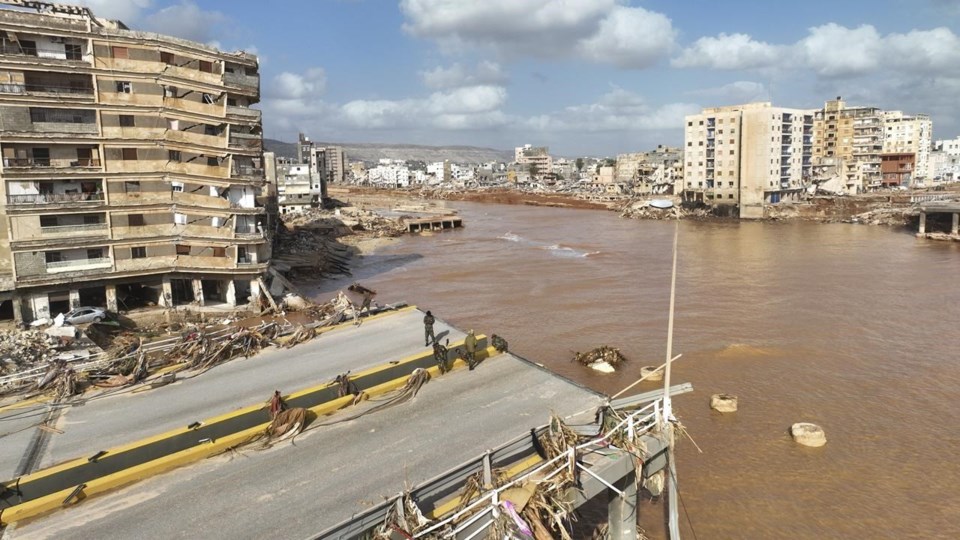The Mediterranean storm that , setting off flooding that’s believed to have killed thousands of people, is the latest extreme weather event to carry some of the hallmarks of climate change, scientists say.
Daniel — dubbed a “medicane” for its hurricane-like characteristics – . And holds more water vapor that can fall as rain, experts said.
It’s difficult to attribute a single weather event to climate change, “but we know there are factors that could be at play” with storms like Daniel that make it more likely, said Kristen Corbosiero, an atmospheric scientist at the University at Albany.
Medicanes form once or twice a year in the Mediterranean, and are most common from September to January. They're not generally true hurricanes, but can reach hurricane strength on rare occasions, said Simon Mason, chief climate scientist at the Columbia Climate School’s International Research Institute for Climate and Society.
Daniel formed as a low-pressure weather system more than a week ago and became blocked by a high-pressure system, dumping extreme amounts of rain on Greece and surrounding areas before inundating Libya.
Warming waters also are causing cyclones to move more slowly, which allows them to dump much more rain, said Raghu Murtugudde, a professor at the Indian Institute of Technology, Bombay and emeritus professor at University of Maryland.
What's more, he said, human activity and climate change together “are producing compound effects of storms and land use.” Flooding in Greece was worsened by wildfires, loss of vegetation, and loose soils and the catastrophic flooding in Libya was made worse by poorly maintained infrastructure.
Dams that collapsed outside Libya’s eastern city of Derna unleashed flash floods that may have killed thousands. Hundreds of bodies were found Tuesday and 10,000 people reported still missing after floodwaters smashed through dams and washed away entire neighborhoods of the city.
that allowed Daniel to intensify and and fed the exceptional rainfall are a phenomenon being observed around the globe, said Jennifer Francis, a senior scientist at Woodwell Climate Research Center.
“Nowhere is immune from devastating storms like Daniel, as demonstrated by recent flooding in Massachusetts, Greece, Hong Kong, Duluth, and elsewhere,” said Francis.
Karsten Haustein, a climate scientist and meteorologist at Leipzig University in Germany, cautioned that scientists haven't had time yet to study Daniel, but noted that the Mediterranean has been 2 to 3 degrees Celsius warmer this year than in the past. And while weather patterns that formed Daniel would have occurred even without climate change, the consequences probably wouldn't have been as severe.
In a cooler world, Daniel probably “wouldn’t have developed as quickly and rapidly as it did,” Haustein said. “And it wouldn’t have hit Libya with such ferocious strength.”
___
Associated Press climate and environmental coverage receives support from several private foundations. See more about AP’s climate initiative . The AP is solely responsible for all content.
Tammy Webber And Isabella O'malley, The Associated Press



